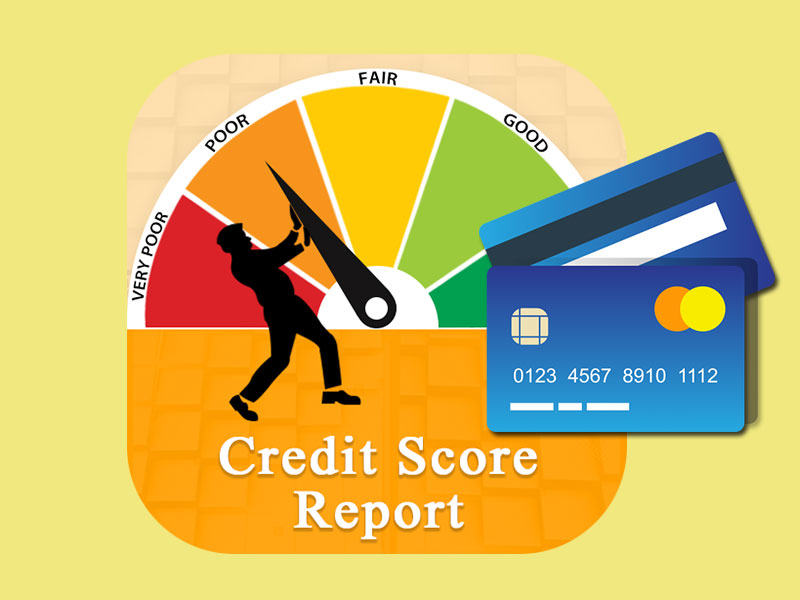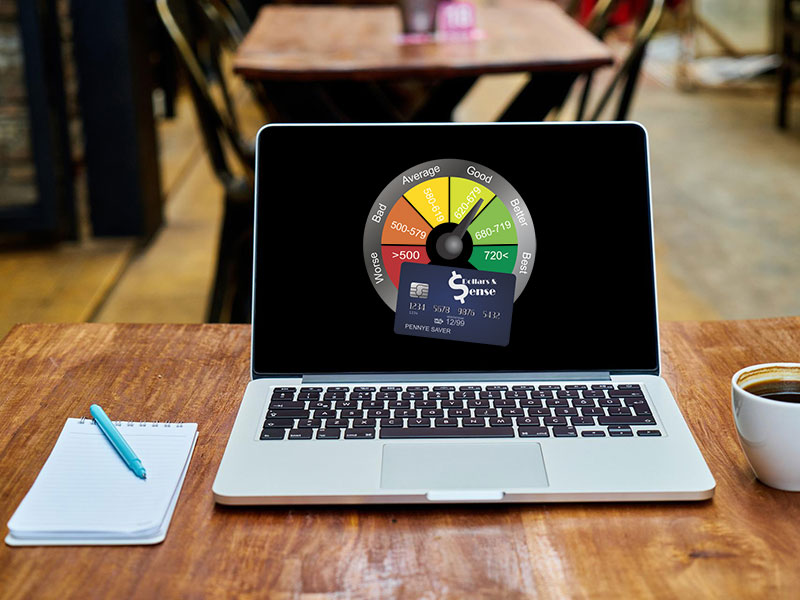
Your credit score is one of the most influential numbers in your life. It can determine whether you get a loan for a car or house and what interest rate you will pay on that loan. It can also affect your ability to get a job, rent an apartment or even sign up for cell phone service. So, what is an average credit score and what can you do to improve yours?

Table of Contents
What Is an Average Credit Score in America?
According to Equifax, the average credit score in America is 698. However, this number can vary greatly depending on what part of the country you live in and your age group. For example, residents of Minnesota and Vermont have the highest average credit scores at 724 and 721, respectively.
Meanwhile, residents in Mississippi and Louisiana have the lowest credit scores at 662 and 669, respectively.
Similarly, people in their 20s tend to have lower credit scores than people in their 30s and 40s. Several potential reasons for this exist:
- Younger people have fewer assets and generally carry a higher debt load to get the things they need.
- People generally become more financially literate and improve money management skills as they grow older.
- Credit lines age like fine wine and carry more weight for the better when kept in good standing over a long period.
What Is a Good or High Score in America?
Now that you know the answer to what is an average credit score, you might be wondering what counts as a good or high score. According to Experian, a good credit score is anything above 700. However, this can vary across scoring models and lenders. For example, a good Vantage score begins at 661 but starts at 670 for FICO.
Why Do I Have Several Different Credit Scores?
You may notice a different score across different scoring models when using credit monitoring apps. You might even see differences across apps, such as Credit Karma versus your bank’s score.
The main reason is that different credit scoring models weigh factors differently. To add to this, even the scoring models have variations. Which one an app or lender uses will lead to differences in the final score.
Additionally, across the credit bureaus, some information might differ. For example, when you open your CreditKarma app or another option that shows info from two credit bureaus, you might see differences in the hard pulls on your report.
What Is an Average Credit Score Risk?
Even if you prefer never to borrow money, landlords, insurance companies, phone companies, and employers might decide to check your credit. Consequently, the risk of a poor standard of living or low quality of life is the biggest concern for a poor credit score.
When people have an average credit score, the odds fall more in their favor. However, opportunities still pale in comparison to having a good or excellent credit score. For example, someone with a good credit score could get a 5% interest rate on a car loan. In contrast, someone with good to excellent credit may be able to get a 3% interest rate.
That extra 2% leads to larger monthly payments and means the person with the 5% rate ultimately pays more in interest. This difference is even more significant for bigger loans, such as purchasing an electric vehicle or getting a mortgage.
What Is an Average Credit Score Improvement Strategy?
The good news is that consumers have control over their credit scores. It all comes down to sound money management and excellent credit-building habits. Consider these methods as part of your strategy.
Build Your Savings
People are more likely to rely on credit when they have no cash to fall back on. This is why building an emergency savings fund is so important. It reduces the need to borrow and puts a person in a much better position to make an informed decision instead of one fueled by desperation.
Pay Your Bills on Time
On-time payments are the most essential factor in credit scoring. Payment history accounts for 35% of a FICO score, the most common scoring model lenders use. To ensure on-time payments, automate all your payments from one account. Then, maintain the minimum balance required to cover your bills.
Keep Credit Balances Low
High credit utilization hurts your credit score because it signals to lenders that you might be struggling to make ends meet. Try and keep balances below 30% of your credit limit. Some finance gurus prefer keeping balances even lower at just 10% and below. This is one of the best ways to resolve the questions of what is an average credit score and how to improve it.
Monitor Your Credit Report
You are entitled to a free credit report from each of the three major credit bureaus every 12 months. Review your reports for mistakes and report anything that looks incorrect. You can also sign up for monitoring apps that let you know when changes occur on your credit report so that you can resolve inaccuracies and potential fraud.
Improve Your Credit Mix
Lenders like to see different credit types on your report. A mix could include revolving debt, such as credit cards, and installment loans. If you only have one credit type, try to get another to diversify your mix.
Maintain Your Accounts
Paying off and closing all your accounts can negatively impact your score. It reduces the available credit and, therefore, the credit utilization ratio. A better idea is to keep the existing ones open and in good standing.
Have Patience
Bankruptcies and some delinquencies can remain on your credit report for up to a decade. Consequently, when you have done everything else, you might just need to play the waiting game for your score to improve. However, note that you can still get a mortgage or car loan within a few years of bankruptcy.
What is an average credit score-building tip you should pay attention to? Credit repair takes time, effort, and a solid commitment to a strategy that works. Check out our credit repair resources and recommendations to speed things up.





